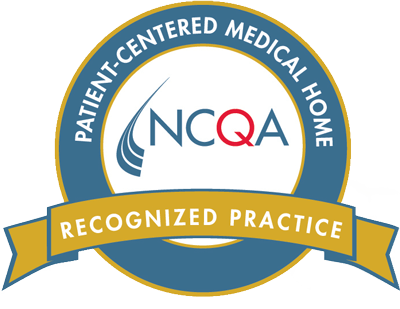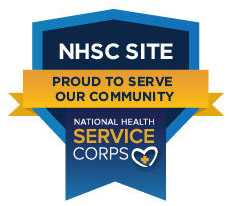Grand Peaks Behavioral Health Services
Individual
Counseling
We provide one-one-one counseling with a trained mental health provider in a safe, caring, and confidential setting.
Family Therapy
The mental health services we offer include family group therapy to help improve communication, nurture change, and address conflict.
Couples
Counseling
Our mental health services help couples work through relationship difficulties, creating an environment of empathy and growth.
School-Based Behavioral Health
We have 3 therapists stationed in Fremont County near Rexburg, ID, to bring counseling to the students within their school environment.
Treatment Specialties
- Anxiety Disorder
- Depression
- Bipolar Disorder
- Trauma
- Suicidal Ideation
- Self-Harming Behavior
- Anger & Emotional Regulation
- Separation & Divorce
- Adolescent Behavioral Problems
- Substance Misuse
- Grief & Loss
- Self-Esteem
- Relational Difficulties
School-Based Behavioral Health
“A child’s mental health is just as important as their physical health and deserves the same quality of support.” – Kate Middleton, Duchess of Cambridge
Who Is Eligible?
- All students are able to see the therapist to help with mental wellness. We take most insurances, self-pay, and offer a Sliding Fee Discount.
- Students having difficulty with depression, anxiety, or other concerns can be seen.
- Requests for services can be made by students, their families, or staff and administration at the school.
- The therapist will meet with the student and family to determine a course of treatment.
What Can I Expect?
- Counseling at the school will be similar to counseling at a clinic in the community.
- Our therapists are provided with a clean, safe, and private location to meet with students.
- While the student’s counseling is protected by privacy laws, the therapist may work with administrators and staff when appropriate.
- Our providers typically meet for brief interventions lasting about 30-40 minutes at the school.
- When necessary, the therapist may request family
involvement in the student’s therapy.
A Student May Be a Good Fit for
School-Based Therapy If:
- They are experiencing a serious emotional disturbance or mental health problems.
- They are having behavioral problems in the classroom.
- You notice a change in a student’s behavior (i.e. they become more quiet/withdrawn or more disruptive, they begin missing assignments, etc.).
- There is a known stressor or event in a student’s life that is concerning.

We are in the following schools:
- Henry’s Fork Elementary
- Teton Elementary
- Parker Elementary
- South Fremont Junior & Senior High School
- North Fremont Junior & Senior High School
- Ashton Elementary School
Individualized Treatment Plans
- Everyone manages stress, anxiety, and depression differently.
- Our providers will work with you to create goals that work for you in order to deliver the best possible care.
- It is common to have depression and to also have anxiety.
- Nearly one-half of those diagnosed with depression also experience higher levels of anxiety.
- Your treatment plan will be tailored to address each mental health condition.
- Your provider will meet you where you are at.
- Your provider will draw on your natural supports and strengths to guide your treatment plan.
- You will be empowered to change habits and behaviors that may be keeping you stuck.
- Therapy doesn’t always feel good.
- Therapy may uncover pain and discomfort that, at first, may make you want to quit.
- Your provider will regularly ask for your feedback related to your care and plan.
- It may take some time to learn what works for you-don’t give up.
Mental & Behavioral Health In Children
- Intense mood swings, agitation, irritability, and anxiety that are well beyond what you would expect for children their age and lasting longer than two weeks at a time.
- Refusing to go to School
- Regular throwing temper tantrums beyond what is age appropriate.
- Excessive arguing and defiance.
- Evidence of self-injury.
- Statements about suicide or feeling like a burden to others.
- Family History of mental illness
- Abuse, Neglect, and other Traumas
- Divorce/Separation
- Substance Abuse
- Traumatic Injuries
- Cognitive and Intellectual Disabilities.
- Bullying
- Excessive peer pressure, overuse of social media, and online presence
- Sometimes there isn’t a reason.
- Letting them know that anxiety and depression are normal.
- Get informed and start learning; it is often intimidating to talk to children about mental health.
- Work on your empathy; your job is to manage and regulate your emotions so your child can work on theirs.
- Help your child find an outlet; learn coping skills and help your child learn to manage anxiety and depression.
- Be active in your child’s care; be present, be open-minded, and be willing.
Our providers are genuinely invested in your child’s
care. We create a therapeutic environment of care
and understanding for you and your family. While
our providers facilitate helping families find
common ground and address conflict, the work falls
on the child and family. We are here to offer
competent and compassionate guidance along the
way.
We Offer Help & Hope—All You Need To Do Is Reach Out
Mental and behavioral health problems are some of the most common health conditions in the United States. According to the CDC,
- More than 50% will be diagnosed with a mental illness or disorder at some point in their lifetime.
- 1 in 5 Americans will experience a mental illness in a given year.
- 1 in 5 children, either currently or at some point during their life, have had a seriously debilitating mental illness.
- 1 in 25 Americans lives with a serious mental illness, such as schizophrenia or major depression.
No matter what the problem may be, we can help at our behavioral health centers.






